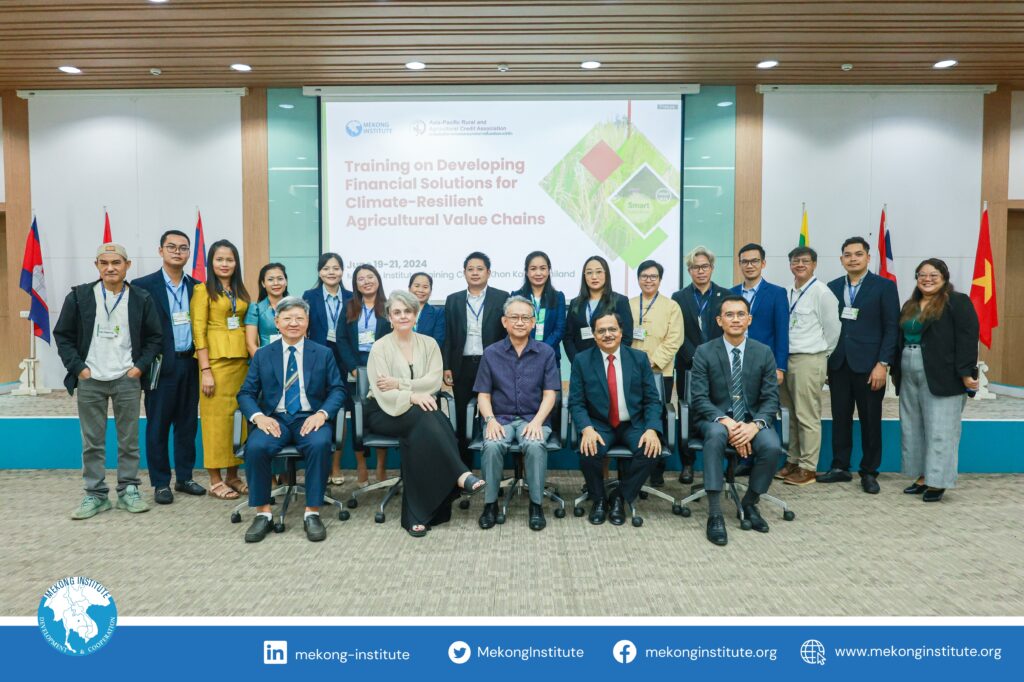Mekong Institute (MI), in collaboration with the Asia-Pacific Rural and Agricultural Credit Association (APRACA), wrapped up the regional training program on “Developing Financial Solutions for Climate-Resilient Agricultural Value Chains.” Held from June 19-21, 2024, at the Mekong Institute in Khon Kaen, the training gathered 15 government officials, bank officers, and NGO program staff from Cambodia, Laos, Thailand, and Vietnam (CLTV).
The training aimed to enhance the capacity of key stakeholders in the agricultural finance sector and value chain. Participants were immersed in a three-day curriculum that equipped them with the necessary skills and knowledge to design and implement financial and support services. These services are intended to aid farmers in transitioning to more resilient and sustainable agricultural practices amidst changing climate conditions.
The urgency of developing financial products tailored to the unique needs of small-scale farmers and agrifood MSMEs was a recurring theme. “There remains a critical need for financial products that are specifically tailored to the unique challenges faced by our food producers—products that are accessible and effectively address the increasingly unpredictable weather patterns threatening our agricultural value chains,” noted Mr. Suriyan Vichitlekarn, Executive Director of MI, during his welcome remarks. “This training is designed to enhance your skills in financial product development and provide a platform for meaningful dialogue about the transboundary nature of climate impacts. By doing so, we aim to strengthen the bonds that unite our countries and foster collaborative efforts to tackle these shared challenges.”
Experts from APRACA, the International Rice Research Institute (IRRI) in Vietnam, and the Bank for Agriculture and Agricultural Cooperatives (BAAC) in Thailand led the training sessions. Combining theoretical knowledge with practical exercises, the training empowered participants to develop innovative financial products that support the agricultural value chain, from production to marketing.
This training was conducted under the MI-APRACA project, ‘Supporting Learning & Capabilities for Scaling Up Agricultural Finance Activities in the Greater Mekong Subregion (GMS).’ This initiative underscores MI and APRACA’s commitment to enhancing agricultural finance strategies that are crucial for the region’s sustainability and economic resilience.








